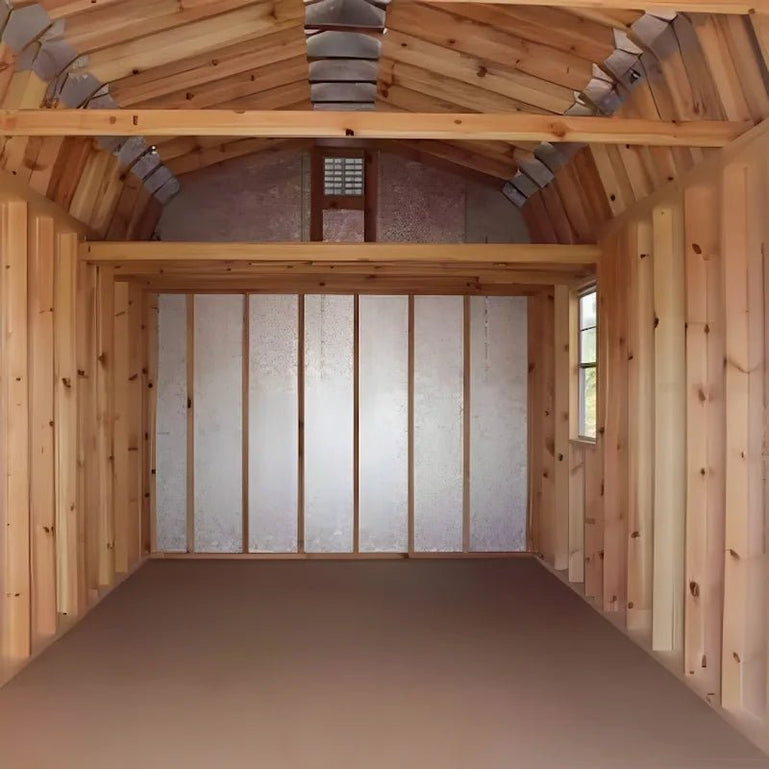1-800-540-905
Info@HomesteadSupplier.com
7am-4pm Pacific Time Mon-Fri
1-800-540-9051
Info@HomesteadSupplier.com
7am-4pm Pacific Time Mon-Fri
1-800-540-905
Info@HomesteadSupplier.com
7am-4pm Pacific Time Mon-Fri
1-800-540-9051
Info@HomesteadSupplier.com
7am-4pm Pacific Time Mon-Fri

Moving a large shed can often seem like a Herculean task, but with the right approach and tools, it's a challenge that can be tackled efficiently and safely. At Homestead Supplier, we understand the complexities and nuances of this process.
Our years of experience in the shed-building industry have taught us that knowing how to move a large shed is not just about brute force; it's about smart planning, understanding the right techniques, and executing them with precision.
Whether you're repositioning your shed to enhance your yard's layout or transporting it to a new location, we're here to guide you through each step, ensuring your shed's journey is as smooth as possible.
What this article covers:Before you embark on this journey, there's some groundwork to be done. After moving our fair share of sheds, we've found that the true first step is to empty your shed.
It might seem tempting to skip this, but trust us, an empty shed is not only lighter but also safer to move. Plus, you'll be protecting your treasures from potential damage.

Next, give your shed a thorough inspection. You'll want to remove anything anchoring it to the foundation. This could range from simple stakes to more robust tornado or hurricane anchors, depending on your location and the shed's size.
Keep in mind that if your shed is slightly old or in used condition, it might be better to go with dismantling and rebuilding a shed than moving it in one piece.
Ensuring that your shed is free from these ties is crucial for learning how to move a shed yourself.
Moving a shed with a trailer is a popular choice, especially for longer distances. Here's how you can do it:
Before you start, it's crucial to ensure that your shed-moving plan aligns with local regulations. Research and understand the zoning and transportation laws in your area.
This step is vital to avoid any legal complications and ensures that your move is permissible, especially for larger sheds that might affect traffic or cross property lines.
Once you're clear on the legalities, the physical work begins. Using sturdy jacks, carefully lift your shed off its foundation. This step requires precision and patience.

If you're not sure how to do this, be sure to read our guide on how to lift a shed off the ground.
You might need to combine pushing and lifting techniques to maneuver the shed onto the trailer. It's a delicate balance, ensuring the shed is elevated just enough without causing any structural stress.
With the shed now resting on the trailer, the next step is to secure it firmly. Center the shed on the trailer to maintain balance during transportation.
Use strong straps to tie it down, ensuring it won't shift or topple during the move. Also, remember to lock or bolt the shed doors to prevent them from swinging open en route.
For shorter distances, like moving across your property, a conveyor system using metal pipes can be effective. Here's the process:
For moving your shed across your property, a conveyor system using metal pipes is an efficient method.
Start by lifting the shed slightly off the ground using automobile jacks. This elevation is necessary to place the metal pipes underneath, which will serve as your rolling conveyor system.
Once the shed is lifted and the pipes are in place, begin the rolling process. Gently push the shed over the pipes, ensuring steady movement.
As the shed moves forward, reposition the last pipe to the front in a continuous loop. This conveyor-like system allows for smoother movement across the ground.

If you're moving the shed to another part of your property and have access to a tractor, here's what you need to do:
In our experience, if you have a tractor available and are moving the shed within your property, this method can be quite effective.
Start by lifting the shed using jacks to a height that allows the tractor forks to slide underneath. Attach these forks securely to the shed, ensuring a stable grip for transportation.
With the shed securely attached to the tractor, begin moving it to the new location. This step requires utmost caution.
Keep a vigilant eye for overhead wires, tree branches, or any other obstacles that could interfere with the move. It's important to move slowly and steadily, avoiding any sudden turns or movements that could destabilize the shed.
You might be wondering, "Why move a large shed in the first place?" Well, there are several reasons.
Perhaps you're reevaluating the placement due to new neighbors, water pooling issues, or simply a desire to reorganize your yard. Or maybe you're moving to a new property and can't bear to leave your beloved shed behind. Whatever the reason, knowing how to move it safely is key.

Moving a large shed can seem daunting, but with the right preparation and methods, it's entirely feasible. Whether you opt for a trailer, a conveyor system, or a tractor, remember to prioritize safety and comply with local regulations.
And if you ever feel unsure, don't hesitate to seek professional help. After putting it to the test ourselves, we can assure you that with a bit of patience and effort, your shed will be sitting pretty in its new location in no time!
Ready to embark on your next shed adventure? Explore Homestead Supplier's premium shed kits, designed for durability and ease, and make your dream outdoor space a reality today!
Did our blog meet your needs? You might also find our other guides helpful:
Compare products
{"one"=>"Select 2 or 3 items to compare", "other"=>"{{ count }} of 3 items selected"}
Leave a comment